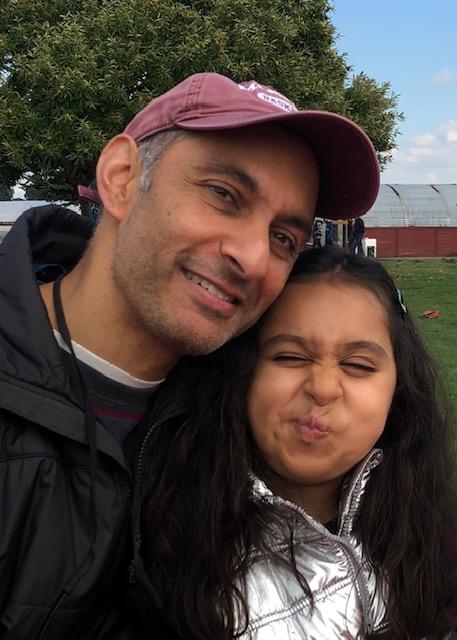Dahnesh Medora serves as the Chief Impact Officer for the Community Impact Department and Early Learning Hub at United Way of the Columbia-Willamette. He has over 20 years of leadership experience in the non-profit sector and is a dedicated leader for social justice. When you come across Dahnesh, you'll be welcomed with an open ear and a strong sense of direction that comes from many years of experience and dedication.
What’s one experience from childhood that helped make you who you are today?
When I was 15, I got a part-time job at a grocery store in my hometown of Missoula, Montana. I did a little bit of everything- bagged groceries, rotated produce, stocked shelves, etc.
In the very quick interview for the job, the manager read over my application and asked how to pronounce my name. Coming from an immigrant family from India, I was pretty used to this question. After a few attempts of trying to say my name, he sort of gave up and said, “That’s not going to work…let’s go with Don.” He grabbed his label maker and stamped out “Don” for my nametag and in that instant, I became Don to everyone in that store.
Over the years, I’ve thought about this quick two minute exchange- what it meant and how it shaped me. I don’t think the manager intended to call me out as an “other”, but it did have that impact. This experience, and others with similarities, put me on a path to try and find ways to discourage othering and encourage belonging. Sometimes this can be as simple as taking an extra moment to try and learn someone’s name. In other situations, it might be more involved and require a deeper understanding of systems and structures that intentionally or unintentionally exclude based on traits like race, skin color, immigration status, etc. In all cases, it requires building a consciousness of how intent and impact play out in service of creating greater belonging.
I still have that name tag and it reminds me of the importance of continuing to practice building consciousness of how we can build a larger and larger sense of “we”. As my daughter (now eight years old) started going to school, I also shared this story with her. Sharing my experiences as a child of color navigating cultural differences is one way to help her understand her own heritage and how her uniqueness can be a source of strength. At the same time, she will also have to discover this on her own and in relation to other people including her peers. Early learning settings can reinforce these messages in different ways including through formal and informal approaches. The greater Portland area is fortunate to have programs like Early Learning Multnomah and Early Learning Washington County that keep culturally responsive and family driven priorities front and center. For thoughtful insights on building our sense of “we”, check out the good work at the Othering and Belonging Institute.
Our work is not possible without strong leaders to advocate equity and social justice. ELM is grateful to have Dahnesh join our team to advocate, lead, and support our programs, partners, and communities!

